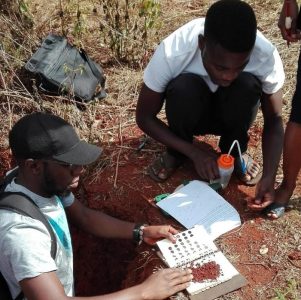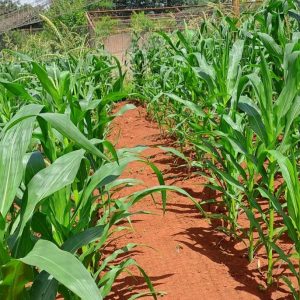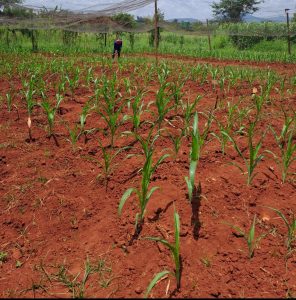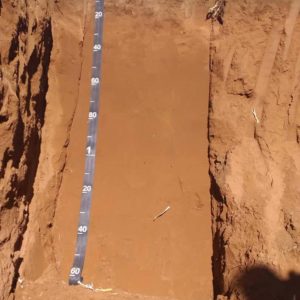Bird’s-eye view of soil science challenges
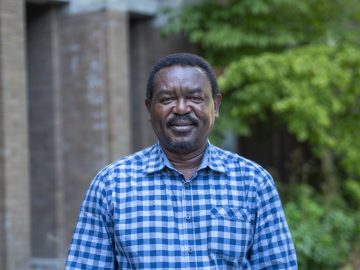
Dr. Jude Odhiambo
August 30, 2023 – Dr. Jude Odhiambo (PhD Soil Science, 1998) has taken a close look at soils around the world – from the Fraser Valley to his current work location in South Africa.
The professor describes Delta, B.C, soil as “greyish to brown and fertile” compared to the “red, highly weathered tropical soils” of South Africa with low fertility status.
A distinguished soil scientist and Professor at the University of Venda, Dr. Odhiambo earned a Fulbright Research Scholar Fellowship in 2023, enabling him to return to North America and take a side trip back to UBC Vancouver campus, where he earned his PhD under the supervision of Professor Emeritus Art Bomke.
He attended UBC from 1993-1998 under a prestigious CIDA (Canadian International Development Agency) Scholarship. Soon after completing his PhD, Dr. Odhiambo returned to Africa and worked at the Department of Soil Science, in the Faculty of Agriculture at the University of Nairobi, Kenya, before moving to University of Venda in South Africa where his academic career flourished.
From March to October 2023, Dr. Odhiambo’s Fulbright host university is Florida International University in Miami. He is doing research activities with students and faculty members in the Agroecology program through seminars, student research mentorships, and exchanging educational as well as cultural knowledge.
“I talk about soil management challenges in South Africa and share this with students. They learn about what happens in South Africa.”
Current pressing issues in the field of soil science? Climate change and maintaining good soil health.
“There are serious extremes – more severe flooding and droughts. Soil scientists must come up with strategies to adapt. I’m excited by the challenges we have to address and getting involved with people who will work on that.”
For instance, Dr. Odhiambo has collaborated with researchers from Germany on modelling aspects of the soil in response to climate change. These experiments rely upon on-farm studies at the University of Venda experimental farm and at small-scale farm sites in South Africa.
Dr. Odhiambo is the immediate past president of the Soil Science Society of South Africa (his term as president ended earlier this year). During COVID-19, he oversaw the annual conference, which moved online for the first time ever in 2022. In addition, during the pandemic he took on the role of Vice-Dean of Teaching and Learning at the University of Venda and managed the challenges of having people quickly learn to deliver fully online learning and assessments.
Soil science students determining soil colour using the Munsell Soil Colour chart during a practical lesson
Maize experiment: Maize plant at growth stage V1.
Maize plant at growth stage V1 experiencing drought stress
A glimpse at one of the soil profiles during a practical field-trip
“Initially, we were locked down for six months. With the labs and fields not being available, this really affected both the undergraduate and postgraduate students, with the postgraduate students’ research being seriously impacted by the lab lockdowns and inability to use the experimental farm.”
Postgraduate students in Soil Science at the University of Venda work closely with farmers to address low soil fertility issues through promoting practices such as crop rotation and adding organic amendments to increase organic matter and improve the physical, chemical and biological properties of soils.
His favourite memory during his time at UBC: doing research in the Fraser River Delta seeding cereal and legume cover crops, such as cereal rye, ryegrass, winter wheat, crimson clover, and hairy vetch, either as sole crops or mixes, in the fall. As the crops grew in the late fall, the cereals captured the residual nitrogen in the soil before the onset of winter rainy season, and this was released back into the soil in the spring when the crops are ploughed back into the soil.
“I remember how cold it was sampling the biomass and soil in the winter when the ground was frozen,” Dr. Odhiambo said. “But as a group of postgraduate students working together in the field during winter, we helped each other as we did our experiments in the winter, then we would come back [to UBC] and work together in the labs.”
